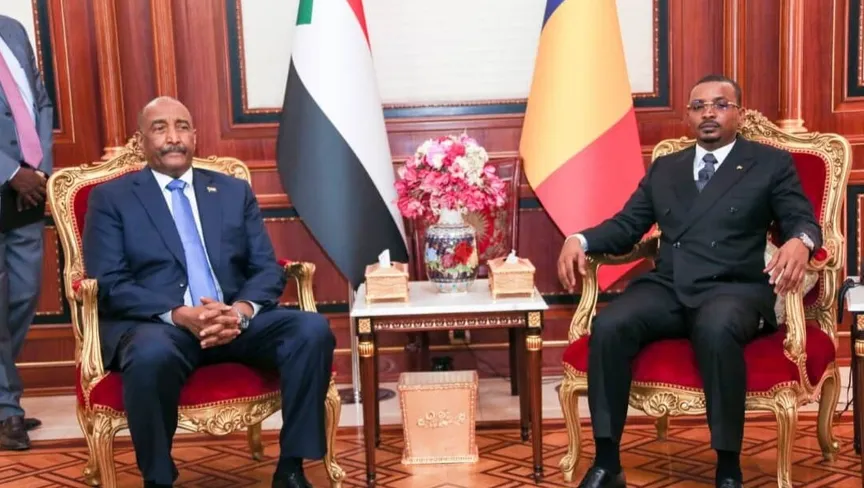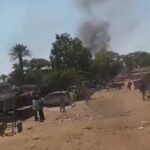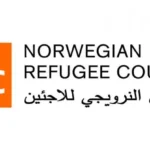Darfur follow-ups
The Sudanese Ministry of Foreign Affairs announced, on Sunday, the expulsion of 4 Chadian diplomats, in response to a similar step taken by Chad, on Saturday, when it informed 4 Sudanese diplomats that they were not wanted.
The Ministry of Foreign Affairs, Chadians Abroad and International Cooperation had informed the Sudanese embassy in N’Djamena of the government’s decision to classify 4 diplomats from Sudan working in Chad as “persona non grata”, and gave them 72 hours to leave the country.
The list included the First Counselor at the Embassy, Mukhtar Bilal Abd al-Salam al-Abbas, the Military Attaché Abd al-Rahim al-Awad al-Toum, the Consul in N’Djamena, Haj Abdallah al-Haj Ahmed, and the Deputy Consul General resident in Abéché, Mohamed al-Hajj Bakhit Farah.
Sudan accuses Chad
The Ministry explained, in a statement signed by the government spokesman, that the decision was issued in response to statements by Yasser Al-Atta, Deputy Chief of Staff of the Sudanese Armed Forces, in which he accused Chad of interfering in the internal Sudanese conflict, and described the statements as “baseless.”
The ministry added, “These accusations were suddenly repeated by Sudanese Foreign Minister Ali Al-Sadig, on a local television channel,” pointing out that “the Sudanese authorities’ repetition of such statements regarding Chad and its government is simply unacceptable and hostile, and covers a hidden agenda.”
The ministry indicated that “this action comes after Chad expressed its surprise, submitted sharp protests, and requested clarification regarding Yasser Al-Atta’s statements,” stressing its great respect for Sudan’s diplomatic mission in N’Djamena.
Khartoum refuses to apologise
The Sudanese Foreign Minister-designate, Ali Al-Sadig, announced in press statements last week that Khartoum would not apologize for Al-Atta’s statements before a crowd of forces in the capital regarding Chad’s role in delivering supplies to the Rapid Support Forces, stressing that Sudan had handed over pictures and evidence, including satellite images. Artificial and aerial photography proves that it supports the Rapid Support Forces logistically.
On November 27, Al-Atta accused Chad of opening its airports to transfer weapons and ammunition to the Rapid Support Forces.
The conflict broke out between the Sudanese army and the Rapid Support Forces in mid-April, claiming the lives of thousands and pushing more than a million to flee to neighboring countries, amid accusations from some countries of supporting the Rapid Support Forces.
Sudanese response
For its part, the Sudanese Ministry of Foreign Affairs decided, on Sunday, to expel 4 Chadian diplomats, declare them persons non grata, and order them to leave the country.
A ministry official said that the expelled diplomats were the embassy’s first advisor, the military attaché, the consul, and his deputy, noting that Khartoum rejected Chad’s request to apologize for Al-Atta’s statements.
Relations between Sudan and Chad have been tense for a long time, due to incidents that occur on the long border between them, and as a result of differing political positions in African and international crises.
On the field, clashes renewed between the army and the Rapid Support Forces, for the third day, in the neighborhoods south of the city of Wad Madani, amid the displacement of a large number of residents, according to eyewitnesses.
Army aircraft bombed Rapid Support targets in the vicinity of the Sports City and the camp grounds south of Khartoum, and also targeted Rapid Support sites in the East Nile region, east of Khartoum.








